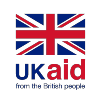I met Rafique*, while he was taking a small break and drinking tea at the roadside. I was collecting life stories for CLARISSA Bangladesh from children living and working on the streets of Hazaribagh.
He let me into his world, just a little bit. “Our life used to be good you know. I used to go to school, my father worked as a guard in an office and my mother worked as a housemaid. We didn’t have much but we were happy. My parents had no problem arranging 3 meals a day for our family.
Rafique described to me that as soon as Covid-19 came, both his parents lost their jobs. They quickly depleted all their savings and did not have any food: “Things got to such a point that in the month of Ramadan, we had to fast without eating anything at night.”
His mother got a job in one of the factories that were still open. But with his father unwell and four mouths to feed, Rafique’s mother realised could not provide for her family alone and pay for his father’s treatment as well.
“I can still remember that night when my mother came to me and said to me in a teary voice: “We didn’t have this planned for you but we need you to work.” The next day I talked to some of my friends and with their help I got a job here in this car garage.’’
Covid and the worst forms of child labour
On Human Rights Day, it reminds us that the pandemic has laid bare the vulnerabilities and inequalities within our societies. Rafique’s family and others have been forced to make choices to ensure their survival but undermine their basic human rights. In any Covid-19 recovery, human rights must be front and centre of that dialogue, and so must children’s voices and experiences.
In the last few weeks, the Bangladesh team has collected around 40 life stories from the broader Hazaribagh area. Almost half of the life stories were about children who started working just after the start of the pandemic. While analysing the stories, there were many that followed the same pattern – where the child was pushed into the worst form of child labour because of the pandemic. They would explain, in the same lines as Rafique: “my parents lost their job, school closed, family was suffering from financial hardship.” There was no safety net to protect them.
In most of the cases, the parents lost their jobs which were supposed to be “permanent”. As Hazaribagh is known for leather works and some small factories were still open at the time of the pandemic, some of the parents managed to get a job at those factories. But the salary of those factories was way less than their previous jobs. So, the parents naturally thought that it would be better if some more money could be earned. Hence, they sent their elder son or elder daughter to work.
So, what now?
These children working in the factories work for long hours in a hot humid room. So, it is impossible for them to keep a mask on in that kind of situation. The factories are very much congested, so there is no chance of social distancing. The children are also working in hazardous environments, which is leading to decreased immunity. Working with harmful chemicals or injurious substances tends to have an adverse impact on the health of a child. But the children who are working right now have no other option.
While I asked a child, “why are you working in this pandemic? Don’t you get scared of contracting the virus?” He replied, “your government is saying STAY AT HOME, STAY AT HOME all the time. Where were they when we were going to sleep every night without eating anything? They are not going to save me. I have to save myself; I have to save my family. If I really get the virus and die, let it be. Death is far better than hunger.”
As all the schools are closed and families are suffering exponentially due to the rise of poverty induced from the pandemic restrictions, there is no doubt that parents and/or the decision-makers of the family are seeing their children working as a survival mechanism.
I ask you this: Is there any other way for the parents to tackle poverty without sacrificing the future of their children?
—
*Rafique is not their real name
